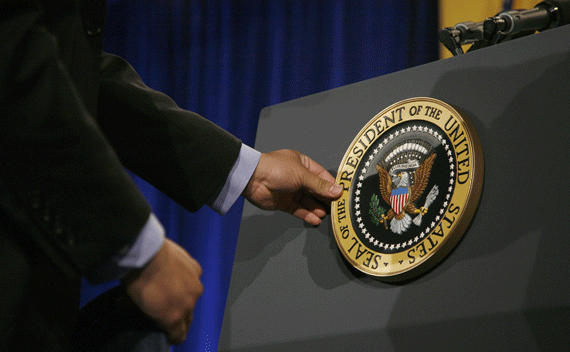Campaign 2012: The First GOP Presidential Debate
More on:

The 2012 campaign season formally kicks off tonight with the first GOP presidential debate. Fox News is carrying the event live at 9 PM EDT. Fox’s Brett Baier will be asking the questions. With virtually all of the GOP’s headliners sitting this one out, the excitement level for tonight’s debate is pretty low. CSI, which has a new episode, will crush the debate in the ratings race. Nonetheless, tonight’s contest could be very revealing—and set the tone for GOP debates to come.
Who will being showing up at the Peace Center in Greenville, South Carolina? Well, Sarah Palin, Mike Huckabee, Michele Bachmann, Newt Gingrich, and Jon Huntsman will all be elsewhere tonight. Each of these GOP luminaries may be mulling over a presidential run, but they haven’t formally created a presidential exploratory committee. That’s one of the formal criteria to participate in the debate. Mitt Romney has created an exploratory committee. He has decided, however, that he is better served by staying out of the debate fray until other heavyweights show up.
So tonight’s line-up will feature Ron Paul, Tim Pawlenty, Herman Cain, Buddy Roemer, Gary Johnson, and Rick Santorum. Not exactly the 1927 Yankees. But that’s not a reason to miss the debate. Longshot candidates have captured presidential nominations before, and what these candidates say tonight will shape what they say down the road.
The thing to watch for tonight is where the candidates come down on the intervention versus non-intervention spectrum. Republican candidates have for decades staked their flag on interventionism, or if you prefer, robust internationalism. They invoke the name of Ronald Reagan, cite American exceptionalism, and champion America’s ability and obligation to remake the world.
That traditional approach may get tested tonight. First, two of the six candidates—Paul and Johnson—are committed non-interventionists. With the headliners sitting on the sidelines, they should get the chance to make their argument that it is time for America to do less overseas. That in itself might pull the other candidates away from a full-throated internationalism.
But broader trends will also be at work. Americans are tiring of the soon-to-be decade-long commitment in Afghanistan. The killing of Osama bin Laden has created a political opportunity to rethink U.S. policy toward not just Afghanistan but also Pakistan. The mission in Libya remains muddled. The trillion dollar deficit has created pressure to cut federal spending, and the defense budget is no longer sacrosanct. The ground work has been laid domestically for a mainstream Republican candidate—and neither Paul nor Johnson are in the mainstream—to try to reclaim an older Republican tradition of preferring an America that is less engaged in the world (or, if you prefer, more isolationist).
Haley Barbour looked to be that candidate. But he has decided against a run. Who else might take up the cause? Could it be Sarah Palin? In a speech on Monday, she sounded less like a hawk and more like, well, Ron Paul. Whereas only about a month ago she was calling for imposing a no-fly zone over Libya, she now has criticized the Libyan mission:
We can’t fight every war. We can’t undo every injustice around the world.
Other GOP candidates no doubt noticed that a market leader is pivoting. So stay tuned. The Republican conversation could get pretty interesting.
More on:
 Online Store
Online Store